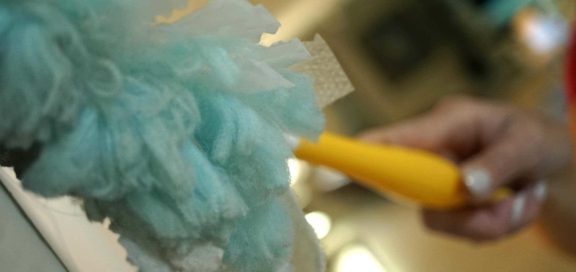Health-related advertising is subject to strict scrutiny
Courts measure advertisements for medical devices and remedies by a particularly strict standard. Efficacy statements (e. g. “kills 100 % of all bacteria”) or health claims (e. g.”… vitalizes”) must be verifiable. Depending on what the advertising statement refers to in terms of content, studies are usually necessary for corroboration. These studies must be carried out in accordance with recognized scientific principles.
CE-marks cannot substitute scientific studies
In a now published judgement (docket no. 2 U 154/16 of 8 June 2017), the Higher Regional Court (OLG) of Stuttgart clarified that companies cannot circumvent this burden of proof by referring to a successful CE certification of the advertised product.
The case at hand concerned a substance called “zeolite”, to which a detoxifying effect was attributed in a product advertisement. The claimed efficacy of the substance is controversially discussed in the scientific community. However, the advertiser had not pointed out the differing opinions on the effectiveness of zeolite. The claimant thus considered the advertisement to amount to an act of unfair competition. He argued that the defendant had failed to provide any scientific evidence of the effects he alleged for his product. The defendant, on the other hand, argued that the products containing zeolite were CE-approved. In his opinion further studies to prove the effects of his products were therefore not necessary.
The court did not concur with the defendant’s arguments. It stated that the CE conformity assessment is neither an official approval procedure nor an administrative legal act. The so-called “notified bodies” which carry out conformity checks and award the CE-certificates are private companies. The tests carried out by these companies therefore rather amount to plausibility checks, which, moreover, only concern individual aspects, for example, of a production process. A product’s (alleged) therapeutic effectiveness is not (necessarily) examined.
In effect, the court enjoined the defendant from continuing the advertising of the product.
Practical implications
The judgement of the Higher Regional Court is not in and of itself surprising, as there is consistent case-law on the (limited) significance of CE markings. However, the decision is an important reminder for manufacturers and distributors of medical devices and remedies: they must choose their advertising statements wisely and ensure that those statements can be corroborated by sufficient and sound (scientific) evidence.
This also applies if the product has previously undergone certification procedures, because, as in the case described here, more often than not, the certification process will not have been concerned with the product feature highlighted for advertisement purposes.
Risk assessment prior to the start of marketing is particularly essential when the (potentially) critical statements are shown on packaging material. If a competitor successfully moves against such claim, all packaging would have to be redesigned or replaced. The potential damage is immense and justifies ensuring that advertising statements are adequately covered in advance in order to minimize legal risks.
Note: The Higher Regional Court did not grant leave to appeal against the decision. Defendant thus filed a complaint with the Federal Court of Justice (Bundesgerichtshof) demanding such right to appeal. The proceedings are still pending there (docket no. I ZR 119/17).








